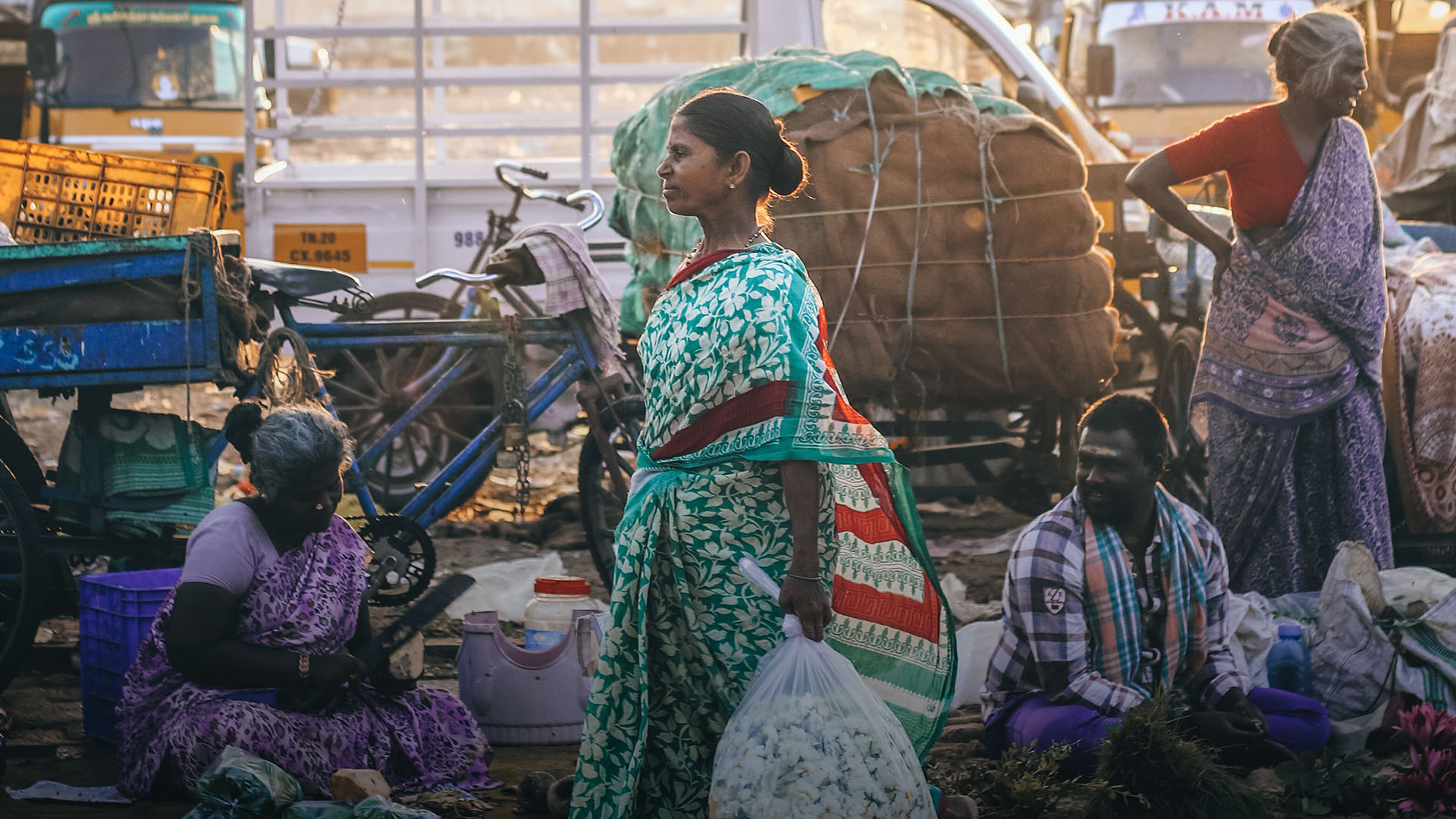God and Christian community helped bring one woman into a place of dignity as she learned how to run her own business.
Maanvi* had never had children. Perhaps it was a small blessing since her husband has a mental disability and she has spent her time caring for him and working to provide for them both over the many years of their marriage.
However, in India, childlessness carries a crippling social stigma.
Without children, Maanvi’s neighbors and even her family treated her as if she were already dead. Neighbors began to take over parts of her property without blushing. She had no children to inherit the land, they argued. Someone might as well take it now, instead of having to wait until she was actually in her grave.
Apparently, her family had the same thought. They showed up at her home and forced her and her husband out onto the street.
Adopted by a Compassionate Community
Maanvi had no means to fight back against her family’s usurpation of her home, but she wasn’t about to give up all hope either. She went from door to door, knocking and then offering the suspicious people who opened up someone to wash their dishes and clothes.
Conditions were still miserable, but at least she and her husband had food most days and a little bit of money to buy new clothes when the old ones became ragged.
As her 50th birthday came and went, though, Maanvi increasingly began to notice the strain of washing baskets of clothes by hand and kneeling on hard floors to scrub the tiles clean. She could feel her body beginning to fail, the aches and pains of hard work without rest growing until they clamored in her head as she trudged home and drowned out almost any other thought.
One day, unexpectedly, she and her husband were visited by a group of Christians who had noticed her situation. After to talking to her, they offered to arrange some means for her to earn a livelihood without having to clean houses.
They explained that they believed in a God who loved her and her husband. Since he cared deeply about their wellbeing, the team did as well.
They met with Maanvi regularly, explaining the concepts of small business planning and economics. The idea of owning a small shop of her own intrigued Maanvi, especially as they began discussing all of the things that she could sell. Meanwhile, World Challenge partners were contacting members of the community and seeing what things they would be interested in buying from a new shop.
Finding a Life of Dignity
The team pooled some money to help Maanvi launch her new shop, and soon she was able to quit all of the house-cleaning jobs and even put aside some money for savings. Between customers, she began making lovely beads like tiny pearls which she soon had a growing market for as well.
To allow her to save more of her income, the team went on to help her get a civil ration card so she could receive grain from the government.
Now she attends the local church and helps others who are struggling with poverty, hopelessness and shame.
“In my hardest times,” Maanvi recollected, “the committee encouraged and stood beside me so I could overcome the miserable conditions. Now I’m able to make money for living, to care for myself and my sick husband.”
Most important has been the sense of value and importance she has in who she is as a child of God. “Now I can live a good and dignified life.”
*Not real name. For safety reasons, we don’t release names or specific locations in highly sensitive areas.
